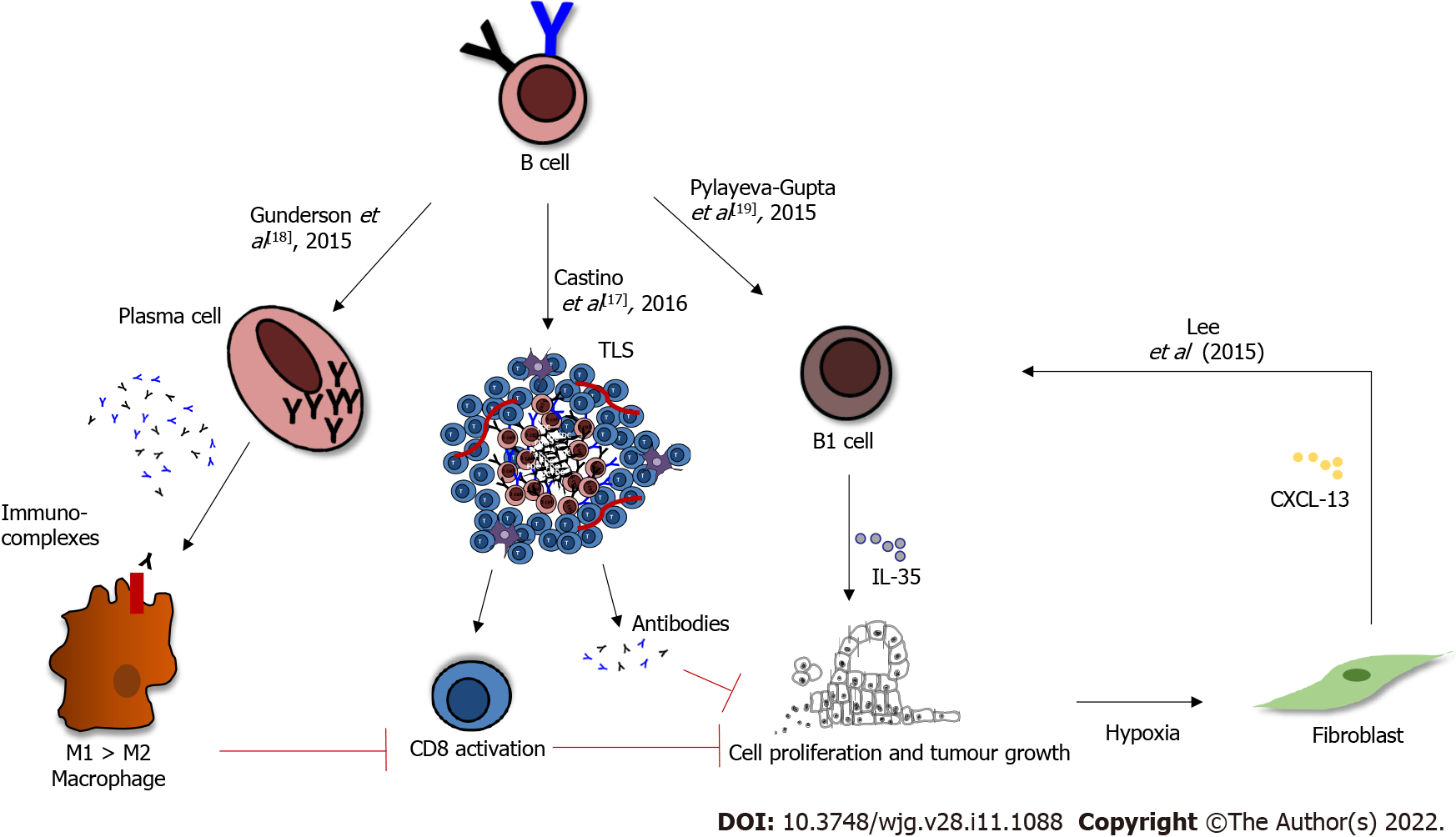Copyright
©The Author(s) 2022.
World J Gastroenterol. Mar 21, 2022; 28(11): 1088-1101
Published online Mar 21, 2022. doi: 10.3748/wjg.v28.i11.1088
Published online Mar 21, 2022. doi: 10.3748/wjg.v28.i11.1088
Figure 1 B-cell role in pancreatic cancer.
B cells mature in plasma cells, which can produce immunoglobulin G, and are able to reprogram the M1 macrophage phenotype to M2 via Bruton’s tyrosine kinase activation. B regulatory cells are able to produce immune-suppressive cytokines, which inhibit the anti-tumour immune response, leading to tumour growth. Furthermore, in presence of hypoxia, stromal fibroblasts can secrete chemokine (C-X-C motif) ligand 13, which recruit B regulatory cells (CD1dhiCD5+) and B1 B cells, resulting in faster tumour growth. Clusters of B cells, with follicular dendritic cells and T cells, are sites for T cell priming and B cell maturation and differentiation into antibody-producing cells, with anti-tumoral effect. TLS: Tertiary lymphoid structures; IL-35: Interleukin-35; CXCL-13: Chemokine (C-X-C motif) ligand 13.
- Citation: Delvecchio FR, Goulart MR, Fincham REA, Bombadieri M, Kocher HM. B cells in pancreatic cancer stroma. World J Gastroenterol 2022; 28(11): 1088-1101
- URL: https://www.wjgnet.com/1007-9327/full/v28/i11/1088.htm
- DOI: https://dx.doi.org/10.3748/wjg.v28.i11.1088









